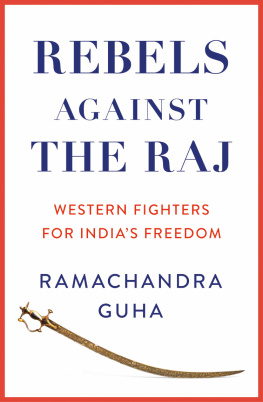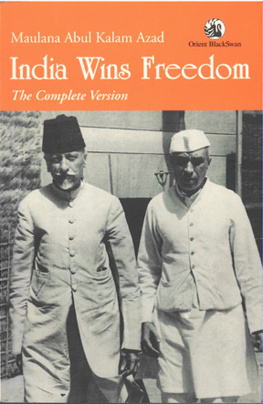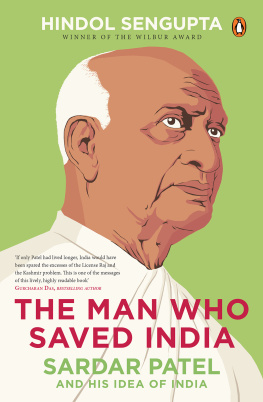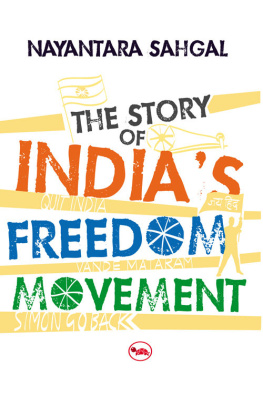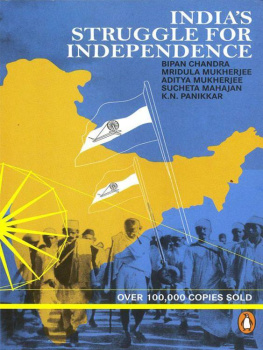Table of Contents
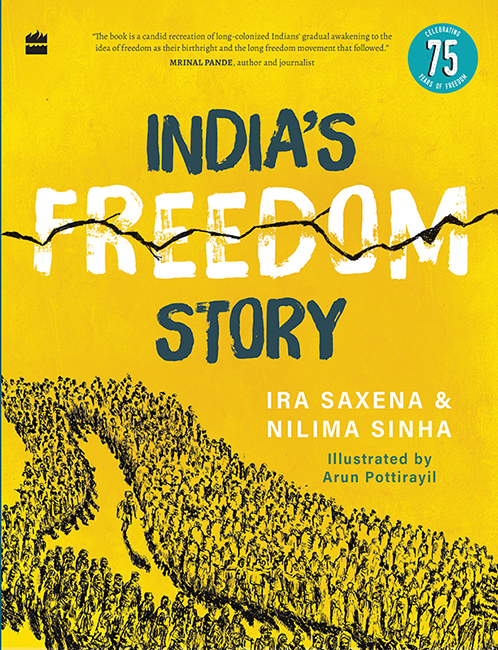

To Bapu, the eternal spirit of nonviolence
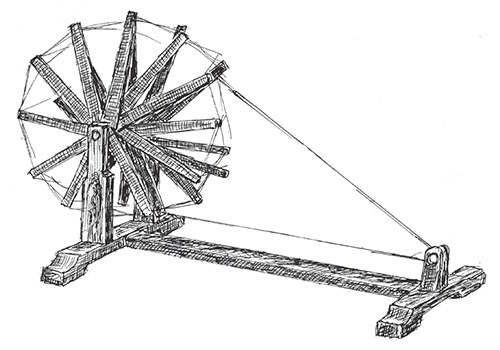
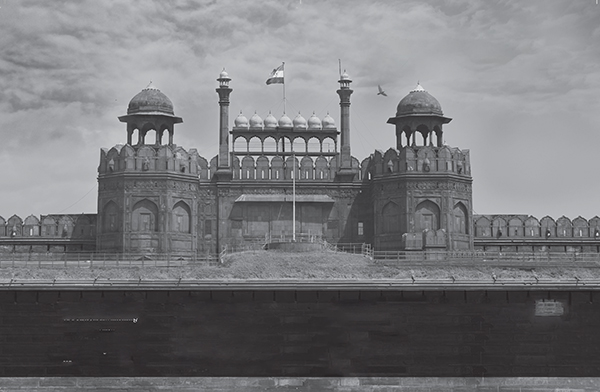
Personal tributes from the authors:
My heart swells with pride as I remember my mother, Kamala Chaudhri, a freedom fighter, poet and writer who was elected to the Constituent Assembly and later joined the Lok Sabha. Her beliefs transformed my father, Dr. J.M.Chaudhri, who became her resolute supporter, in the true spirit of swadeshi. She followed the dictates of Gandhi, practicing Satyagraha devotedly and restoring peace before Partition. Through the stories shared by her about the freedom movement, I developed a keen insight into the tumultuous period enabling me to feel the determination of people to endure and suffer for the sake of freedom. Her words have been the true source of inspiration in writing this book to fulfil my mothers desire to narrate the story of our freedom struggle for the youth of our nation.
Ira Saxena
I am grateful to my father, NC Shrivastava (ICS), who, during his posting in Shimla, took me to a meeting where I was thrilled to see Gandhiji in person. Later my father was posted to Delhi with the specific responsibility of resettling refugees after the Partition. As a child residing in Delhi, I was able to witness the arrival of Freedom, and also experienced the turmoil that accompanied it. As a child, I remember the great shock we felt at the sudden death of Gandhiji, adored leader of the nation. I hope this book makes a fascinating read for todays children, who may be unaware of the emotional ups and downs of those days.
Nilima Sinha
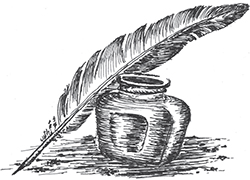
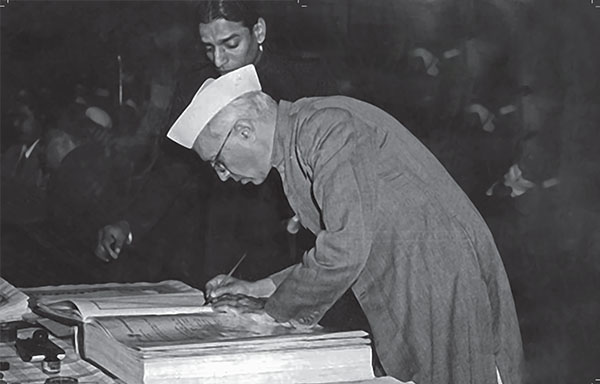
The then Prime Minister Jawaharlal Nehru signing the Constitution of India in New Delhi, on 24th January 1950.
THE IDEA OF FREEDOM
F reedom may have many meanings, depending on an individual and his or her desires. No one can be happy in bondage. All of us need the freedom to be ourselves, to live life as we like, in a way that satisfies and makes us happy.
According to some scriptures, the aim of a human being is to find happiness through the search for truth, by realizing ones full potential. Freedom to develop, to progress and to find happiness is therefore essential to all human beings.
Through the ages, many rulers have tried to curb the free spirit of their subjects. Wars have been fought and nations destroyed to subjugate the free spirit of others. However, long ago, Indian thinkers had discovered that this spirit was universal, all pervading and, most importantly, indestructible. People rose time and again, to fight for their right to freedom. For no human can ever be happy in enslavement.
Thinkers, philosophers and leaders were the first to recognise the importance of freedom and have struggled to attain it for their people. They fought wars and led revolutions. History bears witness to the fact that whenever an existing system becomes unbearable to the vast majority of people, it is overthrown by those suffering the oppression. Change has been brought about by force or peaceful means, depending on the character and maturity of the people.
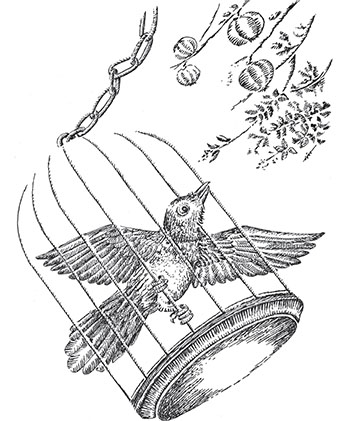
Politically speaking, for a nation and its citizens, the rules formed to govern a free country include well-defined promises which guarantee that each citizen is free to lead the life that she or he wants.
However, freedom does not give the right to go against accepted social norms of the time or to commit crimes against others. Freedom also entails responsibility.
RIGHT TO FREEDOM
Today, as a free nation, we have the rights to Liberty, Justice and Equality. All of us as citizens of a free nation have several other rights that are enshrined in the Constitution, drafted by our leaders. The Constitution lays down the laws of the country and each of us, including the government, is duty bound to uphold these rules, which ensure the welfare of all citizens. Our Constitution protects these rights to make sure that each person has the freedom to live without fear.
For a country like India, with its diverse population from various religions and castes, several aspects needed to be considered before rules could be framed to benefit each of its citizens. One can only imagine how difficult it would have been to reach the right conclusions and draft rules for a country as massive and diverse as India. It is no wonder that it took so long (three years) to draft the Constitution. Changes to this document continue to be made to this day.
These words, written in the Preamble to our Constitution, were included to make sure that each citizen of this nation is free to progress and develop as she or he desires, and the spirit of the individual remains free. Some of the promises made to the nation include Right to Equality before the Law, Right to Freedom of Speech, Right Against Exploitation, Right to Freedom of Religion, Culture and Education, Right to Property and Right to Justice.
As citizens of India, we are all equal before the law. Men or women, rich or poor, irrespective of class, caste, religion or region; we are all equal and have the same rights. No individual can be sentenced without a proper trial in a court. We have the right to own property and possessions that cannot be taken away from us. We are free to express ourselves through personal speech or the press. Nobody has the right to exploit us. We can practice our religion and develop our culture the way we like. Each of us has the right to education, right to jobs, right to travel and right to live where we prefer. If these rights, promised by our Constitution, are denied to us, we can appeal to the courts.
As a democratic nation, each adult citizen again irrespective of sex, class, caste, religion or region has the right to cast his or her vote during elections, to elect members that represent him in the panchayat, municipality, state assembly, or in Parliament. If these representatives do nothing for a citizens welfare, he or she is free not to vote for him or her in the next election.
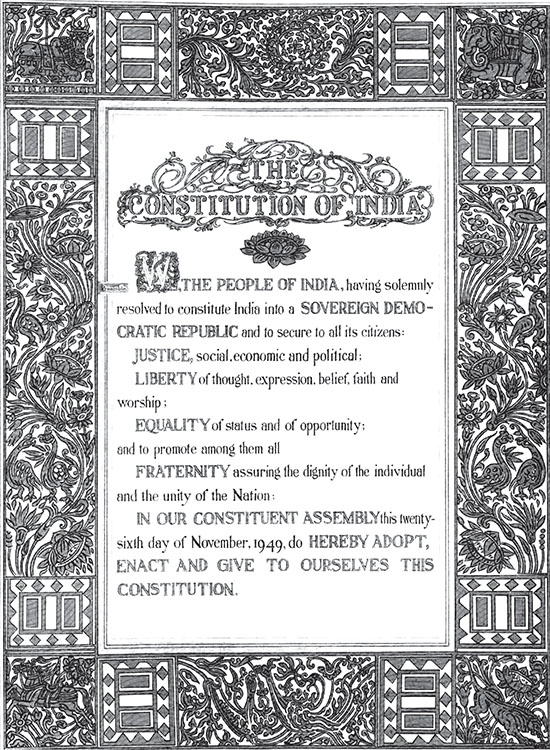
The elected representatives at the Parliamentary level run the government through the executive. They discuss and enact laws in the legislatures. Some of them form the government and control the administration. If these members fail to protect the rights or do not run the administration according to the wishes of the citizens, the latter have the freedom to change the government by not voting for them again. Thus, we are free to elect or remove a government if it does not work for our welfare.
However, these rights cannot be taken for granted. There was a time when we did not have many of these rights. We could not change the government even when it did not protect our rights. We were forced to bear the yoke of our rulers when India was under the rule of the British Crown. We were a subject nation whose people were treated as second-class citizens in their own country. Humiliations and degradations such as not being eligible to serve in the highest ranks or being kept away from first-class coaches in the railways were thrust upon Indians.


